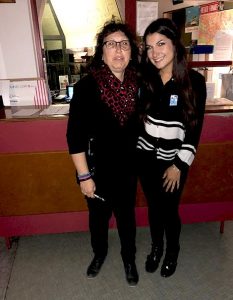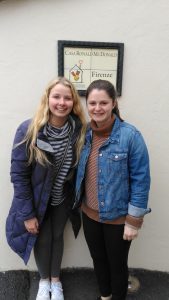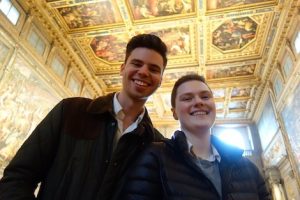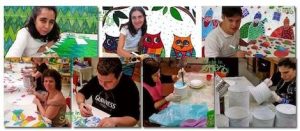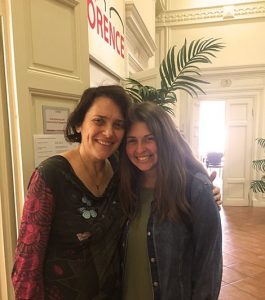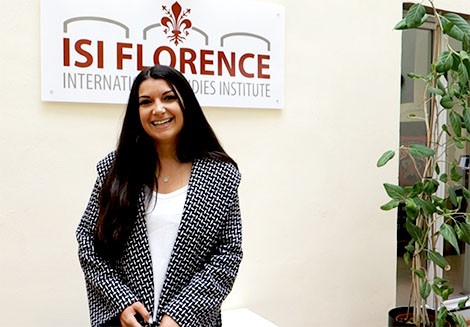 Students who decide to invest their time and energy in community engagement activities during their semester abroad are likely to develop and shape a new identity. The people they meet will nurture their personality and they will learn to understand and accept cultural diversity by questioning their own personal certainties and beliefs.
Students who decide to invest their time and energy in community engagement activities during their semester abroad are likely to develop and shape a new identity. The people they meet will nurture their personality and they will learn to understand and accept cultural diversity by questioning their own personal certainties and beliefs.
We have spoken to many of the students involved in volunteering activities this Spring 2018 semester at ISI Florence. What strikes us is their awareness of how this experience greatly impacts their overall time abroad.
There are so many opportunities to choose from that any student who intends to learn more about Italian culture and spend time with locals will most certainly find something suitable to personal aptitudes. Find out more here!
Megan McGrath from Penn State University shares here an insight on her volunteering experience with Made in Sipario LINK, the Florentine-based NGO that provides an arts program for individuals with intellectual disabilities, allowing them to express themselves while creating products to be sold as profitable means.
Volunteering in Florence
I have been involved in the Down syndrome community at home (U.S.) for a few years now. However, volunteering in Florence is like nothing I have ever experienced before.
During the first week’s orientation at ISI Florence I heard about the opportunities offered by their Community Engagement Office. After much thought and consideration, I decided it was something I was truly interested in; I wanted to give back to the community that so willingly and openly was embracing me. So I met with the coordinator for volunteering activities, Serena Giorgi, and after discussing my background, specifically my involvement in the performing arts programs for mentally disabled people, she matched me with Made in Sipario (click for more information).
Initially, I was nervous; having worked with special populations I understand the challenges and demands that this kind of experience entails. However, I had never encountered a language barrier. I didn’t know much Italian and the people I was aiming to support didn’t speak English. It was going to be big a challenge, I thought.
Being a part of this program has reminded me of the incredible strengths of these people: their artistic intelligences, their patience, and their amicable nature. This group took me in quite quickly, trying to foster friendship and create a relationship – despite our language barrier. And they did not let it dissuade them either. And so, with patience and through trial and error, we each learned how to communicate best with one another.
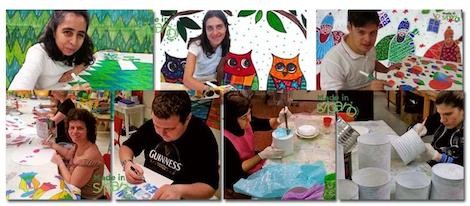
I have learned through experience numerous things about nonverbal communication, more than I would ever have through a textbook or even working hands on with an English speaker. We had nothing else to fall back on, so we had to pay attention to each other’s gestures, expressions, and emotions. After a while I was able to communicate messages to whomever I was partnered with: where to add a color, when to fill in a missed spot, or suggest moving a hand more softly, and not pushing so hard on the paper. Likewise, they learned to communicate to me things like when they were finished with a section and wanted to know which to do next, when they needed help choosing the next color, or when a marker was out of ink. While some of these seem so simple, when you take away a common language, messages like these can actually prove a bit tricky. And yet, we were able to come up with ways to understand each other.
I believe this experience has held great importance for me as I continue forward towards an occupation in Speech and Language Pathology. It taught me the great difficulties of language barriers and ways to cope. I have had the opportunity to be in a position where I struggle communicating with others, a feeling and experience many of my future patients will be all too familiar with. Therefore, I believe I will better understand their feelings and emotions associated to this challenge. I have also deeply understood the great importance of nonverbal communication in relationships.
I am grateful for the time I have spent with this group and what it has taught me about this special population, myself, the cultures we both come from, and mostly, the fact that the world is not as big as we think. If you try, if you put yourself out there and have an open heart and mind, you will find people are not so different – regardless of culture or abilities – but rather, quite the same. Although differences provide challenges, they are not impossible to overcome. And once overcome, incredible things can be accomplished.

